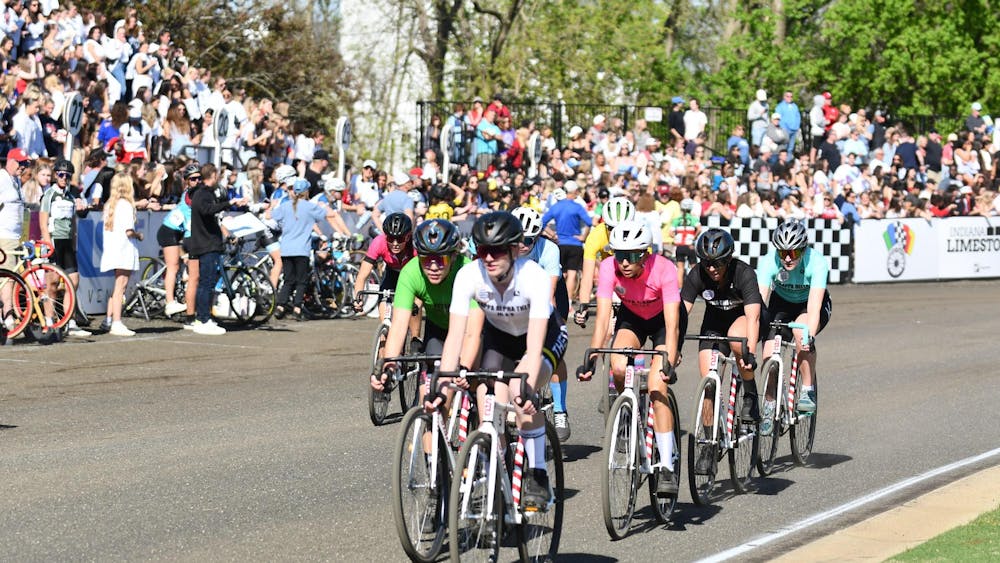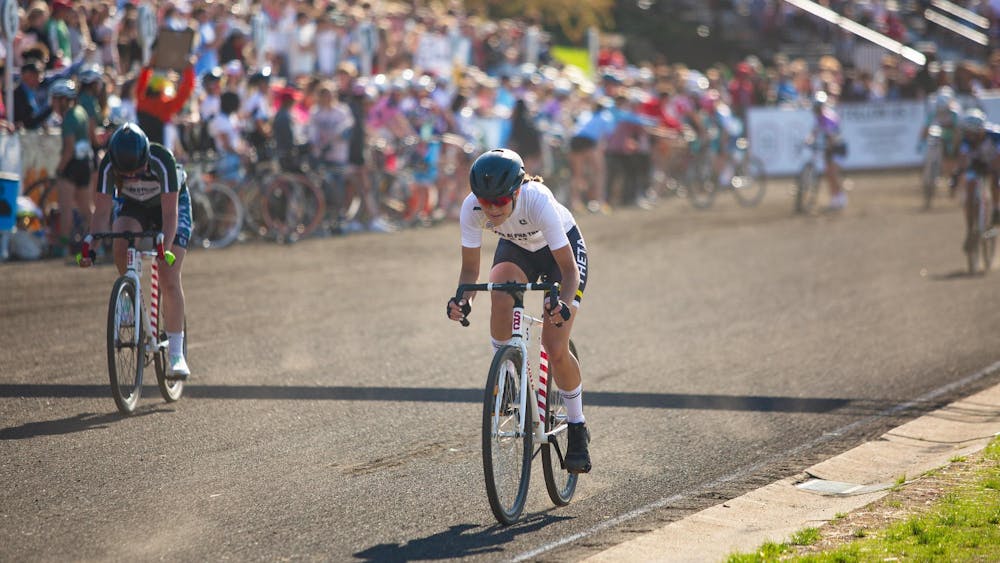Over the course of five months last school year, Freedom Indiana volunteers at IU called more than 80,000 ?Indiana residents.
They were calling to raise support for the removal of Indiana’s same-sex ?marriage ban.
“It was phenomenal,” said Doug Bauder, coordinator of Gay, Lesbian, Bisexual and Transgender Student ?Support Services.
For two days in June, the ban was lifted, but an appeal sent the case to the circuit court, once again making same-sex marriage illegal.
For one day in September, the ban lifted again before being appealed to the Supreme Court.
Monday, the Supreme Court denied requests to hear appeals on same-sex marriage in five states, including Indiana.
The ban was lifted and this time it seemed permanent.
“It’s a done deal here,” Bauder said.
Bauder said the students involved in Freedom Indiana at IU felt they had made a real difference in the fight for marriage equality in Indiana.
He likened the feeling of Monday’s Supreme Court decision to the feeling he had when Barack Obama was elected president in 2008.
He recalled the large number of IU students who had been registered to vote that year, the student activism that rallied support for the Obama campaign and the feeling of celebration when Obama won the presidency.
According to the organization’s website, Freedom Indiana is a bipartisan organization dedicated to the defeat of House Joint Resolution 3 (HJR3), formerly HJR6, a proposed amendment to Indiana’s state constitution that would have made the state’s ban on same sex marriage constitutional.
The amendment never passed.
“I would just say it’s good news,” Bauder said.
Shane O’Bannon, a freshman volunteer at GLBTSSS said he could now see same-sex marriage becoming legal in all 50 states in light of the Supreme Court decision Monday.
There are now 30 states in the U.S. where same-sex marriage is legal.
“It feels real,” he said. “It feels obtainable.”
Bauder said, while he was happy to hear the news, he was somewhat disappointed that the Supreme Court did not choose to make a federal ruling legalizing marriage in all 50 states.
“The good news is they did something today,” he added.
Bauder found out about the decision when a student came to him asking for clarification regarding the decision Monday morning, he said.
The student brought him articles from the New York Times and the Washington Post.
Bauder said he eventually came to the conclusion that by refusing to hear the appeal, the decision reverts to that of the circuit court, thus legalizing same-sex marriage in the five states in the Seventh Circuit, as the circuit court had already ruled last month.
He conceded that the complexity of the court system did have him somewhat perplexed.
“This is complicated procedure,” he said.
Deshea Meely, a senior volunteering at GLBTSSS, said she was glad to see that her LGBT friends could now get married.
“I’m just happy that my friends who are in the GLBT community have the same rights that I do,” she said.
Both O’Bannon and Meely said the fact that same-sex marriage is legal in such a conservative state as Indiana made them feel optimistic about the future for same-sex marriage legislation.
“If Indiana can do it then these other states can, too,” Meely said.
Bauder said he believed that activism such as that of IU students and Freedom Indiana helped to make same-sex marriage a reality in Indiana.
He pointed out that the activism was not only on the part of GLBT students.
“There were straight students who saw this as a civil rights issue, and they were really passionate about it,” he said.
Bauder said that apart from activism, social media likely played a part in the increased number of states that recognize same-sex marriage.
He speculated that the general public might have become more generally accepting as they were exposed to more images of same-sex couples going about their lives.
He said that this image was becoming more commonplace.
Bauder and students recently viewed the film “God Loves Uganda,” Bauder said.
The film explores the evangelical right in Uganda, which according to the film’s website is largely imported from the U.S.
In Uganda, homosexuality is illegal.
Bauder used the film to express the idea that he thinks the religious right is not as influential in the U.S. as it once was.
Bauder said that since the California decision, it has seemed inevitable that it would become legal elsewhere.
Despite the feeling of inevitability, he did say that he didn’t see change like this as possible a few years ago.
“It’s just fascinating to watch,” he said.
He said that, to him, it seemed as though it would only be a matter of time before same-sex marriage would be legal in all 50 states.
He said he was thankful that the same-sex couples who want to get married now can in Indiana and the four other states affected by the decision.
By Monday afternoon, he said friends in same-sex relationships posted photos to Facebook of themselves after getting married.
“It makes me excited about my future,” O’Bannon said. “I might wanna get married someday.”





